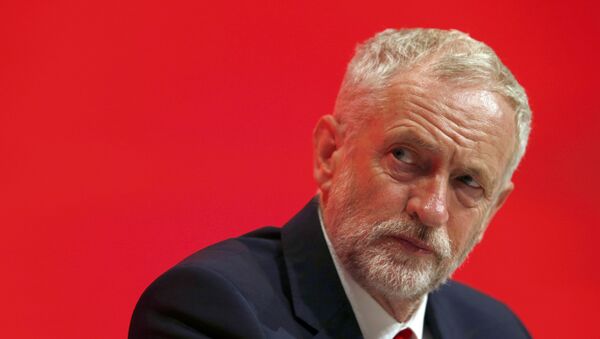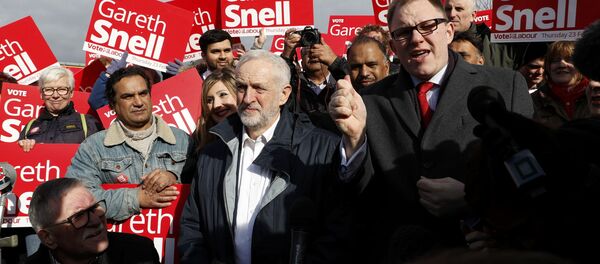The latest ComRes poll shows that just a third (32 percent) of Labour voters think Corbyn is the right person to lead the Party into the 2020 general election. However, the story is worse when the voting intentions of non-Labour voters — those the party needs to win over — are taken into account.
Seventy-seven percent believe the party doesn't have the right leader, 73 percent think it doesn't have the right policies and 71 percent think it has lost touch with the working classes.
There is little appetite for snap election now: only 30% agree May should call one, 41% disagree @TheSundayMirror https://t.co/UuOyriamO0
— ComRes (@ComResPolls) 27 February 2017
The UK Labour party's loss to the Conservatives of the parliamentary seat of Copeland — a seat it has held in a staunchly working-class area of Britain since 1935 — is the latest sign of the self-demolition of the Labour party under its leader Jeremy Corbyn.
For the Conservatives to have won Copeland after having been in Labour hands for 80 years is a clear sign of the disarray within the Labour Party — its grassroots membership, its disparate splinter groups and the parliamentary Labour Party (PLP) under Corbyn.
Theresa May — "This truly is a government that's working for everyone — and that's the message that we bring here to #Copeland." pic.twitter.com/G5M3mPYn1h
— toryactivist (@torychum) February 24, 2017
Twice Elected
There were three frontrunners in the ensuing election: Andy Burnham, former health spokesman, Yvette Cooper, shadow home secretary and Liz Kendall, shadow minister for care and older people. Left-wing Corbyn stood simply because he could — never expecting to win. Corbyn joined the race and was seen as a dark horse.
However, because of the voting system, a huge number of people joined the party as supporters and were able to cast a vote. Corbyn won by a landslide — supported by many left-wingers and the unions, who were tired of the party's move to the center ground under Blair and Brown.
.@jeremycorbyn: "Only Labour can develop and implement such a radical programme." #ScotLab17 pic.twitter.com/TN4QfIiB9y
— Scottish Labour (@scottishlabour) 26 February 2017
By 2016, the disunity forced another leadership challenge, which Corbyn won again — this time with an increased majority. His stance is that he has the popular mandate from among Labour Party supporters, even though he lost a vote of no confidence among his fellow MPs.
Corbyn now presides over a party whose MPs have no confidence in him leading them into the next election, with a third of his own supporters believing he lacks credibility and a whopping 77 percent of non-Labour voters believing he is the wrong man for the job.



